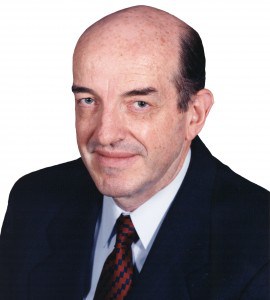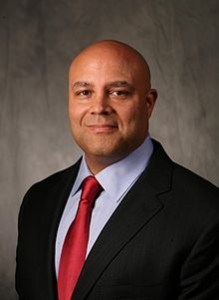
A big 40oz can of Hype from the Washington Post.
Conservative bloggers are calling it socialized “Obama-Wi-Fi,” broadband advocates claim it represents salvation from high-priced wireless service plans, and the media echo chamber is amplifying reports that the federal government in on the verge of launching a nationwide free Wi-Fi network.
Sorry folks, it is not to be.
An article in Sunday’s Washington Post originally titled, “FCC Proposes Large Public WiFi Networks” got the ball rolling, and almost 3,000 reader comments later, a full-scale debate about the merits of government-supplied Wi-Fi Internet access is underway.
Cecilia Kang and her headline writer mislead readers with statements like these:
The federal government wants to create super WiFi networks across the nation, so powerful and broad in reach that consumers could use them to make calls or surf the Internet without paying a cellphone bill every month.
[…] If all goes as planned, free access to the Web would be available in just about every metropolitan area and in many rural areas.
There is nothing new about the FCC’s effort to set aside unlicensed spectrum for so-called “white space” Wi-Fi. As the spectrum wars continue, wireless companies like Verizon and AT&T are pushing proposals to further shrink the number of channels on the UHF television band and repurpose them for expanded cellular data networks. That newly available spectrum would be secured through an FCC auction. FCC chairman Julius Genachowski wants to set aside some of that available spectrum for unlicensed use, including the next generation of Wi-Fi, which will greatly extend its range and speed.
There is no proposal on the table for the government to fund or create a free, national Wi-Fi network as an alternative to paid commercial services. At issue is simply how 120MHz of newly-available television spectrum would be made available to new users. Republicans and large wireless companies like Verizon and AT&T are demanding the vast majority of that spectrum be auctioned off. AT&T and Verizon would like to expand their spectrum holdings, and a straight “highest bidder wins” auction guarantees the vast majority of it will be divided by those two companies. Many Democrats and broadband advocates want a portion of that spectrum set aside to sell to AT&T and Verizon’s competitors — current and future — to promote competition. They also support set-asides that make frequencies available for unlicensed uses like Wi-Fi.
Genachowski’s proposal could potentially spur private companies or communities to build community-wide Wi-Fi networks operated on unlicensed frequencies. With more robust signals, such high speed wireless networks could be less costly to construct and serve a much wider geographic area.
The potential for competition from the public or private sector is what bothers companies like AT&T and Verizon. Both argue that since they had to pay for their spectrum, allowing other users access to free spectrum would be unfair, both to themselves and to the government’s effort to earn as much as possible from the auction. AT&T has been the more aggressive of the two companies, repeatedly attempting to insert language into legislation curtailing the FCC’s ability to set aside a significant amount of spectrum for unlicensed use. While AT&T’s lobbyists do not go as far as to advocate banning such networks, the technical conditions they demand would make them untenable. AT&T and others also demand the FCC must close down unlicensed networks if they create “harmful interference,” which is open to interpretation.
Helping the wireless companies in the campaign against the next generation of Wi-Fi are hardware manufacturers like Cisco, which has been trying to deep six the proposal for at least two years. Why? Because Cisco’s vision of wireless networking, and the products it has manufactured to date, are not in sync with the kind of longer distance Wi-Fi networks the FCC envisions. Cisco faces overhauling products that were designed under the premise Wi-Fi would remain a limited-range, mostly indoor service for consumers and businesses.
The threat to incumbent Internet Service Providers is clear enough. If a new version of Wi-Fi launched that could blanket entire neighborhoods, communities, non-profits, or even loosely-knit groups of altruistic individuals could launch free Wi-Fi services sharing their Internet connection with others. If the technology allowed users to seamlessly hand off wireless connections from one free Wi-Fi hotspot to another, much like cell sites do today, customers might downgrade their wireless data plans with big telecom companies. Machine-to-machine networking could also rely on Wi-Fi instead of commercial wireless data plans. It could threaten billions in potential revenue.
Stopping these networks is a priority for corporate interests with profits at stake. But one thing they do not have to worry about, at least for now, is the federal government getting into the wireless Internet business.
[flv width=”640″ height=”380″]http://www.phillipdampier.com/video/Washington Post FCC offers path to free Internet access 2-4-13.flv[/flv]
After the original story ran in the Post, Cecilia Kang participated in this interview which clarified what the FCC is actually proposing. This video explains what spectrum allocation and unlicensed spectrum is all about. Kang clarifies her article, explaining private companies and/or communities will have to decide what to do with the unlicensed spectrum. The federal government is only facilitating the space and has no plans to run a national network itself. (5 minutes)
https://www.washingtonpost.com/business/technology/tech-telecom-giants-take-sides-as-fcc-proposes-large-public-wifi-networks/2013/02/03/eb27d3e0-698b-11e2-ada3-d86a4806d5ee_story.html


 Subscribe
Subscribe Susan Crawford’s new book, “Captive Audience: The Telecom Industry and Monopoly Power in the New Gilded Age,” is on the receiving end of a lot of heat from industry lobbyists and those working for shadowy think tanks and “consumer groups.”
Susan Crawford’s new book, “Captive Audience: The Telecom Industry and Monopoly Power in the New Gilded Age,” is on the receiving end of a lot of heat from industry lobbyists and those working for shadowy think tanks and “consumer groups.”






